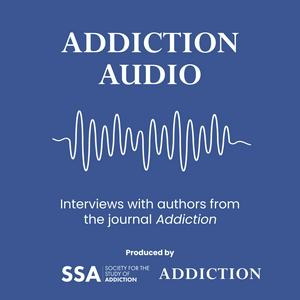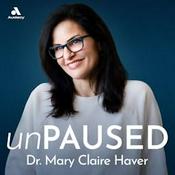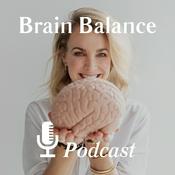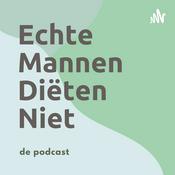112 afleveringen
- In this episode, Dr Tsen Vei Lim speaks to Dr Elisa Wegmann and Annica Kessling, a post-doctoral research fellow and a PhD student at the University of Duisburg-Essen, Germany. The interview covers Annica and Elisa’s research article on the effects of acute psychosocial stress on cue-reactivity, attentional bias and implicit associations in women with problematic social network use: An experimental study
What is problematic social network use? [01:36]
The controversy of social network use as an addiction [02:50]
What we already know about cognition in people with problematic social network use [03:37]
What Annica and Elisa mean by implicit cognition in this context [05:21]
Why it is important to study stress and social network use [06:09]
The recruitment and experiments of the study [07:55]
Examples of the paradigms used [09:42]
The key findings of the study [11:53]
Annica and Elisa’s thoughts on their paradoxical findings [12:45]
Do the findings change how we view problematic social network use? [14:22]
What do the findings add to the debate of social network use as an addiction behaviour [16:37]
About Tsen Vei Lim: Tsen Vei is an academic fellow supported by the Society for the Study of Addiction, currently based at the Department of Psychiatry at the University of Cambridge. His research integrates computational modelling, experimental psychology, and neuroimaging to understand the neuropsychological basis of addictive behaviours. He holds a PhD in Psychiatry from the University of Cambridge (UK) and a BSc in Psychology from the University of Bath (UK).
About Annica Kessling: Annica is a PhD student at the Chair of General Psychology: Cognition at the University of Duisburg-Essen and a member of the research group FOR2974 “Affective and Cognitive Mechanisms of Specific Internet-Use Disorders,” within which she is completing her doctoral research. Her work focuses on problematic social media use, examining affective and implicit cognitive mechanisms as well as the impact of stress and predisposing variables on usage behaviour. A central component of her research involves experimental designs that integrate both objective and subjective measures to capture the complex interplay underlying maladaptive social network use.
About Elisa Wegmann: Elisa is a post-doctoral research fellow at the University of Duisburg-Essen, Department of General Psychology: Cognition. Her research focuses on the problematic use of social media and a better understanding of this potential disorder based on theoretical considerations and the identification of similarities and differences to other addictive behaviours. This is addressed by investigating the interplay of predisposing variables with affective and cognitive mechanisms resulting in significant impairments in daily life due to social media through a variety of methods such as clinical diagnostics, physiological markers, and the implementation and development of experimental paradigms and questionnaires.
The authors have no conflicts of interest to declare.
Original article: Effects of acute psychosocial stress on cue-reactivity, attentional bias and implicit associations in women with problematic social network use: An experimental study https://doi.org/10.1111/add.70099
The opinions expressed in this podcast reflect the views of the host and interviewees and do not necessarily represent the opinions or official positions of the SSA or Addiction journal.
The SSA does not endorse or guarantee the accuracy of the information in external sources or links and accepts no responsibility or liability for any consequences arising from the use of such information.
Hosted on Acast. See acast.com/privacy for more information. - In this episode, Dr Tsen Vei Lim speaks to Dr Justin Mahlberg, a Research Fellow at Monash University, Australia. The interview covers Justin’s research article on social cognition and decision-making in people with methamphetamine use disorder.
Why studying cognition in methamphetamine use disorder is important [01:26]
Antisocial behaviour among those with methamphetamine use disorder [02:24]
How Justin investigated social cognition within the study [02:55]
Basic social cognition processes that Justin looked at in this study [04:29]
The key findings from the study [05:41]
How Justin examined pro-social decision making through computer games [09:31]
How Justin examined anti-social decision making through simulations [12:09]
How the findings effect how we understand methamphetamine use disorder [14:14]
The implications of the findings for treatment outcomes [15:33]
The contribution of the findings to policy and practice [18:17]
About Tsen Vei Lim: Tsen Vei is an academic fellow supported by the Society for the Study of Addiction, currently based at the Department of Psychiatry at the University of Cambridge. His research integrates computational modelling, experimental psychology, and neuroimaging to understand the neuropsychological basis of addictive behaviours. He holds a PhD in Psychiatry from the University of Cambridge (UK) and a BSc in Psychology from the University of Bath (UK).
About Justin Mahlberg: Justin holds a PhD in Psychology and is currently a Research Fellow in the Addiction & Impulsivity Research Lab within the School of Psychological Sciences and the Turner Institute for Brain and Mental Health at Monash University. Justin’s research is interested in uncovering how cognitive and decision-making processes shape human behaviour to help build better individualised, neuroscience-informed approaches to behavioural change. Justin is currently the clinical lead for an umbrella intervention trial focusing on developing brain-informed methods for personalising brain stimulation as a treatment for Alcohol Use Disorder.
Original article: Social cognition and decision-making in people with methamphetamine use disorder https://doi.org/10.1111/add.70108
The opinions expressed in this podcast reflect the views of the host and interviewees and do not necessarily represent the opinions or official positions of the SSA or Addiction journal.
The SSA does not endorse or guarantee the accuracy of the information in external sources or links and accepts no responsibility or liability for any consequences arising from the use of such information.
Hosted on Acast. See acast.com/privacy for more information. - In this episode, Dr Elle Wadsworth talks to Dr Emmert Roberts, Senior Clinical Lecturer at the National Addiction Centre, King’s College London and a Consultant Addiction Psychiatrist at the South London and the Maudsley NHS Foundation Trust. The interview covers Emmert’s short report examining the characteristics of drug-related deaths among individuals identified as LGBTQ+ in the United Kingdom, 1997–2024.
LGBTQ+ stands for Lesbian, Gay, Bisexual, Trans, Queer and others.
The importance of examining drug-related deaths among those in the LGBTQ+ community [01:31]
The use of the National Program on Substance Use Mortality database [04:00]
The main findings of the study [05:05]
The types of drugs used in sexualised and non-sexualised drug use [08:31]
The limitations of the reporting of sexual orientation or trans status in coroner data [10:18]
Improving the reporting of sexual orientation and trans status in coroner data [13:02]
The implications of the findings for policy and practice [16:04]
A sneak preview of findings from Emmert’s other paper in Addiction on methamphetamine-related deaths [17:07]
The findings that were surprising to Emmert [18:59]
About Elle Wadsworth: Elle is an academic fellow with the Society for the Study of Addiction. She is based at the University of Bath with the Addiction and Mental Health Group and her research interests include drug policy, cannabis legalisation, and public health.
About Emmert Roberts: Emmert is a Senior Clinical Lecturer at the National Addiction Centre, King’s College London and a Consultant Addiction Psychiatrist at the South London and the Maudsley NHS Foundation Trust. He is a National Institute of Health and Care Research (NIHR) Advanced Fellow, a Senior Harkness Fellow at the Commonwealth Fund and the Clinical Lead of the National Program on Substance Use Mortality (NPSUM).
Authors have no conflicts of interest to declare.
Original article: Characteristics of drug-related deaths among individuals identified as LGBTQ+ in the United Kingdom, 1997–2024 https://doi.org/10.1111/add.70198
The opinions expressed in this podcast reflect the views of the host and interviewees and do not necessarily represent the opinions or official positions of the SSA or Addiction journal.
The SSA does not endorse or guarantee the accuracy of the information in external sources or links and accepts no responsibility or liability for any consequences arising from the use of such information.
Hosted on Acast. See acast.com/privacy for more information. - In this episode, Dr Elle Wadsworth talks to Dr Myfanwy Graham, a Postgraduate Scholar at Monash University funded by the Australian Government's National Health and Medical Research Council. The interview covers Myfanwy’s data insight paper examining differences in the measurement of medical cannabis use.
Why definitions and contexts matter with regards to medical cannabis use [01:05]
Four measures of medical cannabis use that Myfanwy explored in the study [02:05]
The medical cannabis policy contexts of the US, Australia, and Canada [03:30]
The importance of using standardised questions across different countries [05:18]
The main findings of the data insight [05:48]
Interpretations of medical cannabis use [07:49]
The implications of the findings for policy and practice [08:23]
Myfanwy’s preferred measure of medical cannabis use [09:30]
Self perceptions of being a medical cannabis consumer [10:34]
The take-home messages of the study [11:56]
About Elle Wadsworth: Elle is an academic fellow with the Society for the Study of Addiction. She is based at the University of Bath with the Addiction and Mental Health Group and her research interests include drug policy, cannabis legalisation, and public health.
About Myfanwy Graham: Myfanwy is a Postgraduate Scholar funded by the Australian Government's National Health and Medical Research Council and a Monash Research Excellence Scholar at the Monash Addiction Research Centre, Monash University. Her research examines the intersection between drug policy and health outcomes with psychoactive medicines (e.g. medical cannabis, psychedelics). She is also a current Fellow at the Schaeffer Center for Health Policy and Economics at the University of Southern California and is a Fulbright Scholar Alumna in public health policy. Myfanwy has completed consultancy work for the Australian Government Department of Health, Disability and Ageing, World Health Organization, the United Nations Office on Drugs and Crime and the National Academies of Sciences, Engineering, and Medicine. She is also a registered pharmacist.
Authors have no conflicts of interest to declare.
Original article: Understanding medical cannabis use internationally: Why definitions and context matter https://doi.org/10.1111/add.70117
The opinions expressed in this podcast reflect the views of the host and interviewees and do not necessarily represent the opinions or official positions of the SSA or Addiction journal.
The SSA does not endorse or guarantee the accuracy of the information in external sources or links and accepts no responsibility or liability for any consequences arising from the use of such information.
Hosted on Acast. See acast.com/privacy for more information. - In this episode, Dr Elle Wadsworth talks to Dr Tim Mackey and Dr Doug Roehler. Tim is a professor in the Global Health Program at UC San Diego and the CEO and co-founder of S-3 Research, and Doug is the Cannabis Research Unit lead in the Department of Policy and Research for California’s Department of Cannabis Control. The interview covers Tim and Doug’s research article exploring the health benefit claims of cannabis products on online marketplaces in the United States.
Why exploring health benefit claims on cannabis products was an important topic to investigate [01:20]
What are cannabis-derived products? [03:07]
What are the online marketplaces ‘Leafly’ and ‘Weedmaps’? [03:35]
Examples of health benefit claims [05:00]
The main findings of the study [07:33]
The cannabis regulatory environment in the US [10:20]
The differences in health claims between different types of cannabis products [12:20]
The methodology used in the study that brought together data scientists and public health researchers [14:11]
The health claims that surprised Tim and Doug [18:31]
About Elle Wadsworth: Elle is an academic fellow with the Society for the Study of Addiction. She is based at the University of Bath with the Addiction and Mental Health Group and her research interests include drug policy, cannabis legalisation, and public health. She has a BSc in Chemistry, an MSc in Addiction Studies, and a PhD in Public Health.
About Tim Ken Mackey: Tim is a Professor in the Global Health Program at UC San Diego and the CEO and co-founder of S-3 Research, a public health data science company originally created from a Challenge.gov award. He is also the Director of the Global Health Policy and Data Institute and the Editor-in-Chief of JMIR Infodemiology. He has co-authored over 270 manuscripts on topics including global health, technology, data science, substance use disorder, and health policy. Dr Mackey is an entrepreneur and scientist working on technology innovation to address public health challenges.
About Douglas Roehler: Doug leads the Cannabis Research Unit in the Department of Policy and Research for California’s Department of Cannabis Control. Previously, he was a health scientist and epidemiologist in the Division of Overdose Prevention at the CDC, where he primarily served in the CDC’s Cannabis Strategy Unit. He has published extensively on cannabis topics in peer-reviewed journals and governmental reports, appeared on national podcasts, and represented the CDC in the national media. He has published widely on several other topics, including injury prevention, drug overdose and substance use, youth prevention, syndromic surveillance, traffic crashes, and youth violence.
Declarations of Interest: Tim Mackey is the CEO and co-founder of the company S-3 Research and holds equity/ownership in the company. S-3 Research is a small business that has received funding through government contracts and grants for professional and technology services including on topics related to substance use disorder.
Original article: Exploratory analysis of United States-based cannabis product health benefit claims on online marketplaces https://doi.org/10.1111/add.70177
The opinions expressed in this podcast reflect the views of the host and interviewees and do not necessarily represent the opinions or official positions of the SSA or Addiction journal.
The SSA does not endorse or guarantee the accuracy of the information in external sources or links and accepts no responsibility or liability for any consequences arising from the use of such information.
Hosted on Acast. See acast.com/privacy for more information.
Meer Gezondheid en fitness podcasts
Trending Gezondheid en fitness -podcasts
Over Addiction Audio
Welcome to the podcast from the journal Addiction. The podcast includes interviews with Addiction authors about their work, details about publishing in the journal, and other topics of interest to the field of addiction. This podcast is for researchers, clinicians, students, people with lived experience, and anyone with an interest in the topic. For Season 3, our interviewers are: Dr Elle Wadsworth, Dr Tsen Vei Lim, Dr Chloe Burke, and Dr Zoe Swithenbank. Hosted on Acast. See acast.com/privacy for more information.
Podcast websiteLuister naar Addiction Audio, Lang zal je leven en vele andere podcasts van over de hele wereld met de radio.net-app

Ontvang de gratis radio.net app
- Zenders en podcasts om te bookmarken
- Streamen via Wi-Fi of Bluetooth
- Ondersteunt Carplay & Android Auto
- Veel andere app-functies
Ontvang de gratis radio.net app
- Zenders en podcasts om te bookmarken
- Streamen via Wi-Fi of Bluetooth
- Ondersteunt Carplay & Android Auto
- Veel andere app-functies


Addiction Audio
Scan de code,
download de app,
luisteren.
download de app,
luisteren.



































